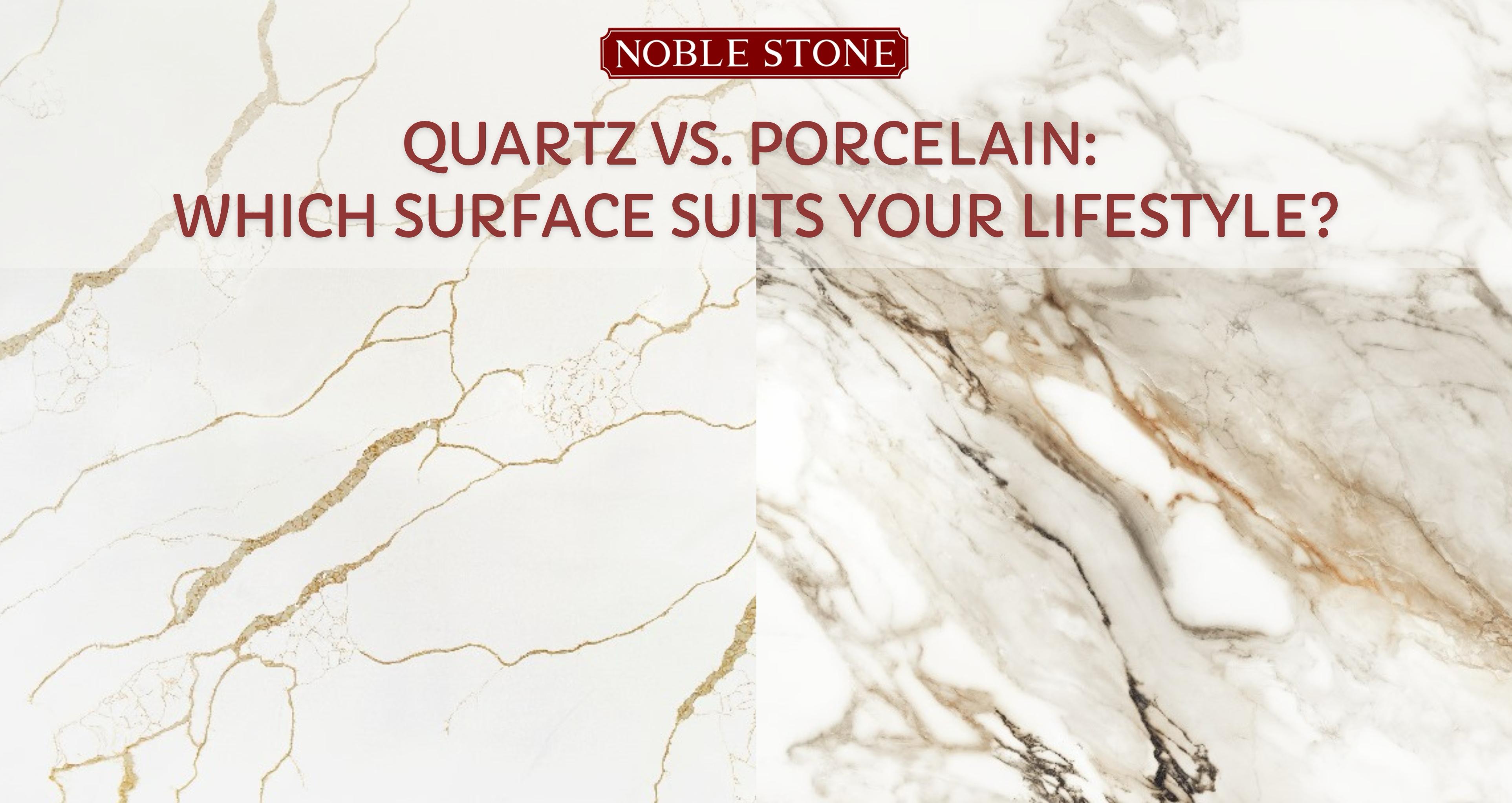
When it comes to selecting the perfect surface for your kitchen, bathroom, or living space, two top contenders often emerge: quartz and porcelain. At NobleStone UK, we specialise in premium-quality surfaces that not only enhance the aesthetic appeal of your space but also offer lasting durability. But how do you choose between quartz and porcelain? This guide breaks down the pros, cons, and ideal use-cases of each to help you make an informed decision that fits your lifestyle.
Quartz is an engineered stone made primarily from natural quartz crystals combined with resin and pigments. The result is a strong, non-porous material that's available in a wide variety of colours and patterns.
Pros of Quartz: Durability: Highly resistant to scratches, stains, and cracks.
Low Maintenance: Non-porous surface means it doesn't require sealing.
Aesthetic Variety: Available in styles that mimic natural stone like marble and granite.
Cons of Quartz:
Not Heat-Proof: Quartz can be damaged by direct, high heat.
Indoor Use Recommended: Prolonged UV exposure can discolour the surface.
Best Uses: Kitchen worktops, bathroom vanities, and indoor surfaces.
Porcelain is a ceramic material made by heating refined clay at very high temperatures. Modern porcelain slabs used in interiors are incredibly dense and durable.
Pros of Porcelain:
Heat Resistant: Can withstand high temperatures without damage.
UV Resistant: Excellent for both indoor and outdoor use.
Stain Resistant: Its non-porous surface resists staining and is easy to clean.
Cons of Porcelain:
Harder to Repair: Chips and cracks are more difficult to fix.
Pattern Limitation: Some may find the design options less warm than quartz.
Best Uses: Outdoor kitchens, bathroom walls, and fireplaces.
Quartz offers rich, deep colours and veining, closely mimicking luxurious natural stones like Calacatta marble. Porcelain, on the other hand, provides a more sleek and uniform appearance. The choice often comes down to personal preference and the existing decor of your home.
If low maintenance is a priority, quartz may be more suitable thanks to its scratch and stain resistance. Porcelain is slightly more brittle but excels in heat and UV resistance, making it ideal for outdoor or high-heat areas.
While both quartz and porcelain are considered premium materials, costs can vary based on brand, style, and installation requirements. In general:
Quartz: Typically ranges higher due to its intricate patterns and popularity.
Porcelain: Often more budget-friendly, especially for large surface areas.
Both quartz and porcelain have eco-friendly options. Quartz is often made from abundant natural materials, while porcelain can be fully recyclable and is fired using energy-efficient kilns. NobleStone UK prioritises sustainable sourcing and environmentally responsible manufacturing for all our surfaces.
Choose Quartz if: You want a luxurious, stone-like finish, need a durable indoor surface, and prefer minimal maintenance.
Choose Porcelain if: You need a heat-resistant, UV-stable surface for indoor or outdoor use, and like a contemporary, uniform look.
Both materials are excellent choices, and at NobleStone UK, we offer an exquisite selection of each to suit different lifestyles and design preferences.
FAQs
Q1: Can I place hot pans directly on quartz or porcelain surfaces? A: While porcelain can handle high temperatures, it's best to use trivets for quartz to prevent heat damage.
Q2: Are quartz and porcelain surfaces easy to clean? A: Yes. Both materials are non-porous and can be cleaned with mild soap and water.
Q3: Which surface is more suitable for outdoor use? A: Porcelain is the better option for outdoor spaces due to its UV resistance and ability to handle varying temperatures.
Q4: Do either of these surfaces require sealing? A: No. Both quartz and porcelain are non-porous and do not require sealing, making maintenance simple.
Explore our full range of premium quartz and porcelain surfaces at NobleStone UK and find the perfect match for your lifestyle today.